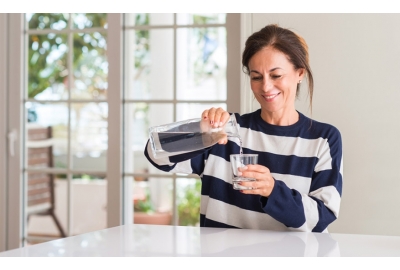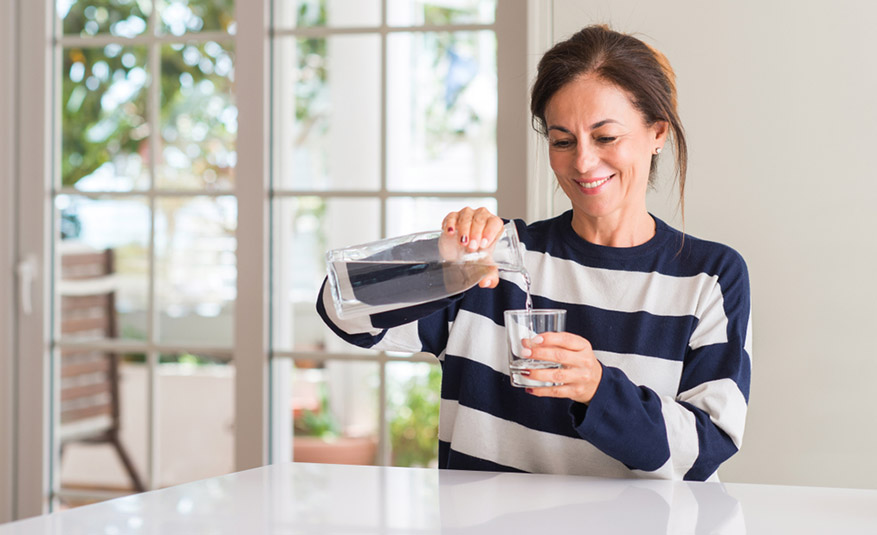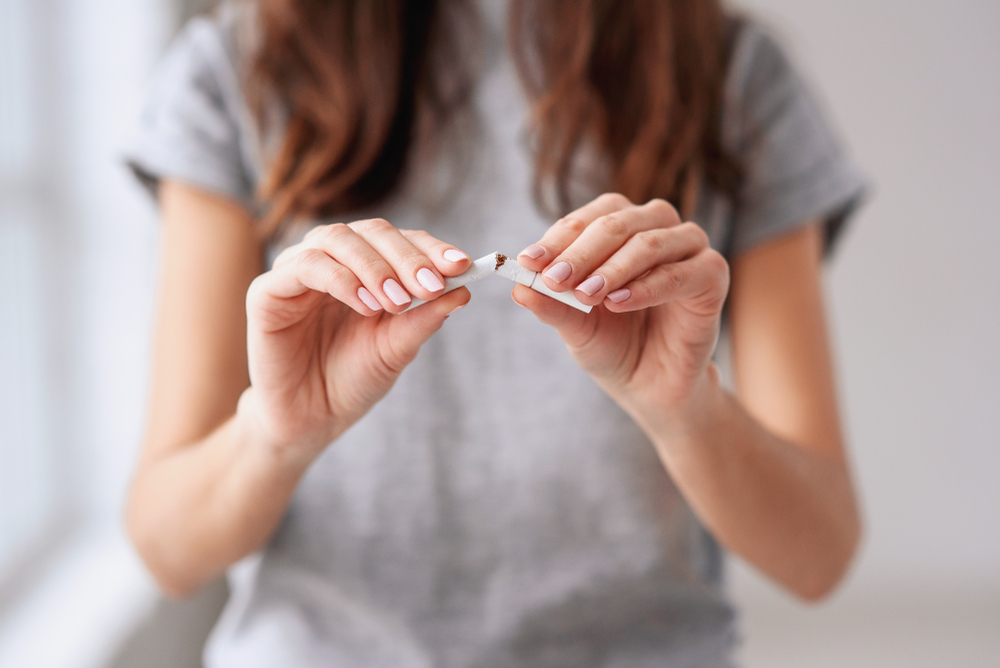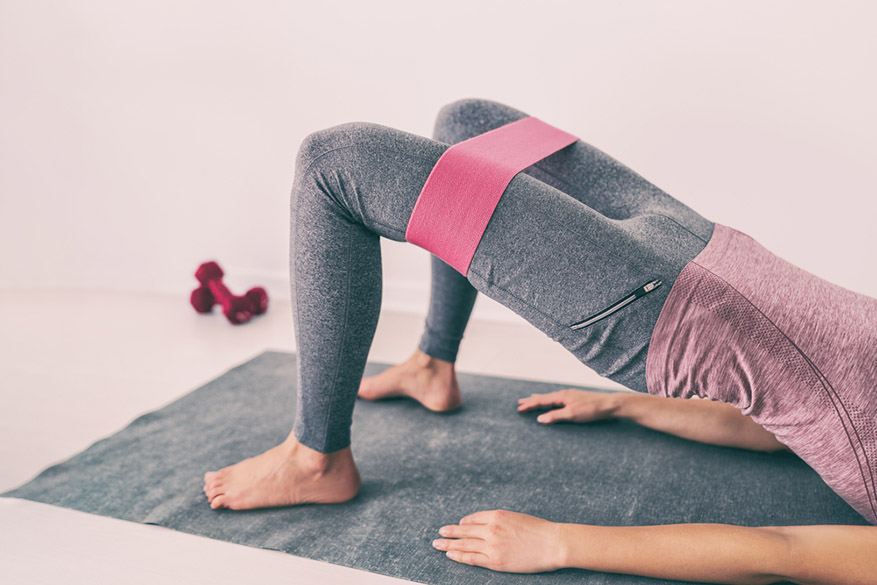
How to Calm an Irritated Bladder
Your bladder hurts, you have to go to the bathroom all the time, and the sensation has ramped up from an annoyance to something that seems to run your life. If your bladder is irritated and you’re not sure what to do about it, try these 10 tips to help calm your bladder and manage symptoms of incontinence.

By Krakenimages.com/Shutterstock.com
Stay hydrated.
You don’t want to drink so many fluids that it causes you to frequently urinate. However, you also don’t want to swing so far in the opposite direction that you drink too little and become dehydrated. Your body is more likely to get irritated when you’re dehydrated, and this includes your bladder. So keep drinking that water — just not too much of it.
Drink the right beverages.
Not all fluids are created equal. While it is important to stay hydrated, certain beverages contain substances that can actually irritate your bladder. Drinks to stay away from include alcohol, coffee, tea, carbonated beverages, apple and cranberry juice, and milk. Some people are okay drinking these in moderation, while others need to eliminate them completely, so listen to your body.
Watch what you eat.
Like beverages, foods can also irritate your bladder. Some potential trigger foods to watch out for include:
- Apples
- Cantaloupe
- Chili and spicy foods
- Chocolate
- Citrus fruit
- Cranberries
- Grapes
- Guava
- Dairy products
- Peaches
- Pineapple
- Plums
- Strawberries
- Sugar and artificial sweeteners
- Tomatoes and tomato juice
- Food and liquids with B-complex vitamins
- Vinegar.
Fortunately, most people react to only a few items on this list, but it’s important to be aware of these items and adjust your diet accordingly.
Consider an elimination diet.
So how can you figure out which of the above items you’re allergic to? An elimination diet can help, meaning that you remove all the items from your diet, give your system time to recover, and then slowly add the foods back in one at a time. If the food item re-irritates your bladder, then you know to avoid it in the future, or, at the very least, cut down your consumption.
Adopt daily habits that minimize constipation.
Constipation can put more pressure on your bladder and cause irritation. To keep yourself regular, eat a diet of mild foods that are high in fiber. Movement through exercises will also cause muscles in the area to physically contract, helping you to stick to a regular schedule.

By Gorynvd / Shutterstock.com
Quit bad habits like smoking.
Besides the lungs and throat, smoking irritates many of your body’s tissues, including your bladder. It can increase your risk of developing bladder cancer, as well as other bladder-related issues, including irritation. Smokers also commonly develop a chronic cough, which can put further pressure on the bladder and can trigger incontinence. If you currently smoke, stopping smoking may help ease some of your incontinence problems.
Maintain a healthy weight.
Carrying around a lot of excess weight can put extra pressure on your bladder and trigger incontinence. If your doctor thinks this may be a contributing factor to your bladder leakage, you might want to look into losing weight alongside some of the other items on this list. If you’re already at a healthy weight, try to maintain that through portion control and eating a well-balanced diet.
Exercise regularly.
Exercise doesn’t just keep you regular, it also builds your muscles, including those that help support and control your bladder. If you’re new to exercise, walking is a low impact activity you can start with only a good pair of tennis shoes. Once you get into a regular walking routine, you can try jogging or incorporating other forms of exercise.

By Maridav / Shutterstock.com
Build your pelvic floor muscles.
Speaking of exercises, you might want to specifically strengthen your pelvic floor muscles, which are the muscles that directly support and control your bladder. Pelvic floor exercises, also called Kegels, will build those muscles and help you hold your urine in for longer. If you have trouble locating those muscles or want to increase the intensity of the exercises, adding Kegel balls can help.
Browse Our Kegel Ball Collection
Try bladder training.
If your bladder leakage is triggered by urge incontinence, bladder training can help you work to increase the intervals between your bathroom stops. Make sure to talk to your doctor before beginning bladder training. If urge incontinence isn’t the root cause, you could irritate your bladder further by trying to hold in your urine when you genuinely have to use the bathroom.
If your bladder training manifests as incontinence, you can manage it in the short-term by wearing incontinence liners while you wait for the longer-term treatments listed here to take effect. Shop trusted products from your favorite brands, like Tena liners, from Sofia & Grace today.